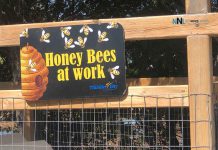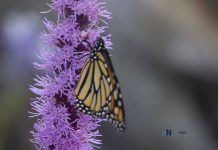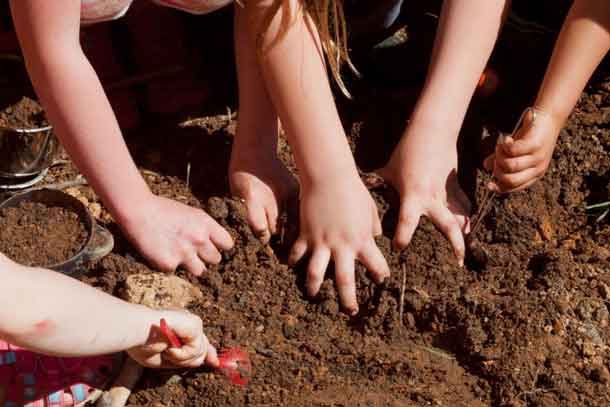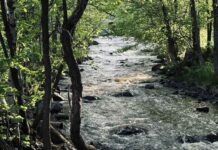Thunder Bay – Climate – After the winter we have had, and a spring that has felt more like winter, many people can’t wait to get the winter grime and clutter cleaned up in their yards.
However before you grab the rake, or put the dethatching blade on the lawnmower, take a minute to read this article.
As the weather starts to warm up, one of the first tasks on many people’s to-do lists is raking up the leaves and debris that have accumulated over the winter months. While this may seem like a harmless chore, it can actually have a negative impact on vital pollinators like bees and butterflies.
When we rake our yards, we disturb the natural habitat of many insects, including pollinators. Leaves, twigs, and other debris provide important shelter and nesting sites for bees and other beneficial insects. Raking these materials away can leave pollinators without a place to live and reproduce. This is especially true for ground-nesting bees, which rely on leaf litter and other debris to create their nests.
In addition to providing shelter, leaves and other debris are an important food source for pollinators. As the leaves decompose, they release important nutrients into the soil, which can be taken up by plants and used by pollinators. Removing these materials can disrupt the natural nutrient cycle and lead to a decline in pollinator populations.
So, what can we do instead of raking our yards? One option is to leave the leaves and debris in place, allowing them to decompose and provide habitat and nutrients for pollinators. This can also help improve soil health and reduce the need for fertilizers and other chemicals.
Another option is to create a dedicated pollinator garden or area in your yard. This can be a small patch of wildflowers or other native plants that provide food and habitat for pollinators. By creating a dedicated space for these important insects, you can help support local ecosystems and promote biodiversity in your community.
While it may be tempting to rake our yards clean in the spring, it’s important to consider the impact that this can have on vital pollinators like bees and butterflies. By leaving the leaves and debris in place, or creating a dedicated pollinator garden, we can help support these important insects and promote healthy, thriving ecosystems. So next time you’re out in the yard, take a moment to appreciate the important role that pollinators play and consider how you can support them in your own backyard.








